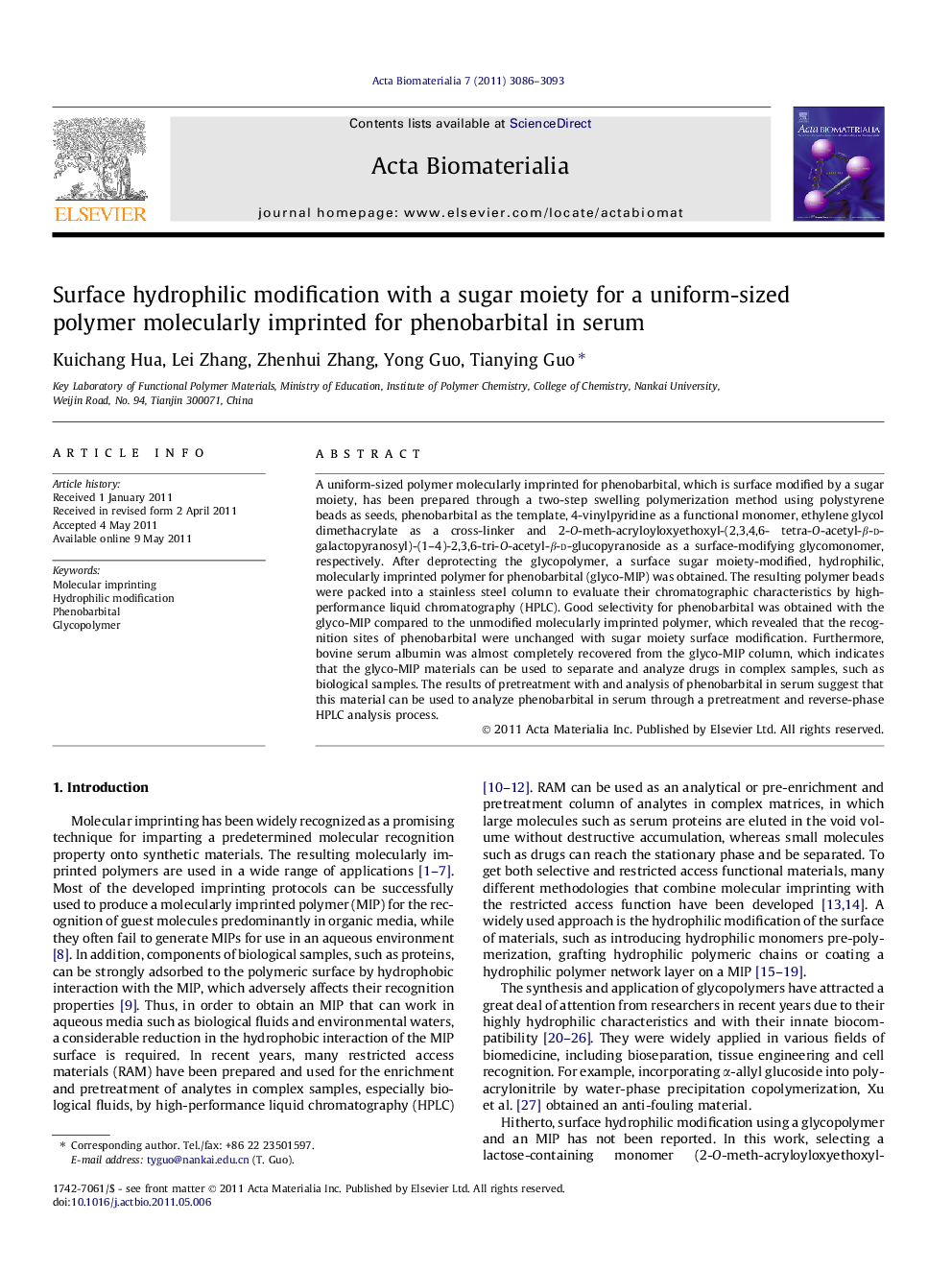| Article ID | Journal | Published Year | Pages | File Type |
|---|---|---|---|---|
| 1010 | Acta Biomaterialia | 2011 | 8 Pages |
A uniform-sized polymer molecularly imprinted for phenobarbital, which is surface modified by a sugar moiety, has been prepared through a two-step swelling polymerization method using polystyrene beads as seeds, phenobarbital as the template, 4-vinylpyridine as a functional monomer, ethylene glycol dimethacrylate as a cross-linker and 2-O-meth-acryloyloxyethoxyl-(2,3,4,6- tetra-O-acetyl-β-d-galactopyranosyl)-(1–4)-2,3,6-tri-O-acetyl-β-d-glucopyranoside as a surface-modifying glycomonomer, respectively. After deprotecting the glycopolymer, a surface sugar moiety-modified, hydrophilic, molecularly imprinted polymer for phenobarbital (glyco-MIP) was obtained. The resulting polymer beads were packed into a stainless steel column to evaluate their chromatographic characteristics by high-performance liquid chromatography (HPLC). Good selectivity for phenobarbital was obtained with the glyco-MIP compared to the unmodified molecularly imprinted polymer, which revealed that the recognition sites of phenobarbital were unchanged with sugar moiety surface modification. Furthermore, bovine serum albumin was almost completely recovered from the glyco-MIP column, which indicates that the glyco-MIP materials can be used to separate and analyze drugs in complex samples, such as biological samples. The results of pretreatment with and analysis of phenobarbital in serum suggest that this material can be used to analyze phenobarbital in serum through a pretreatment and reverse-phase HPLC analysis process.
